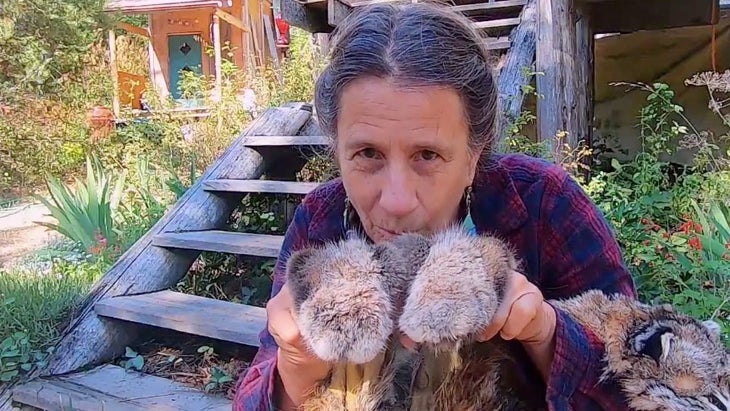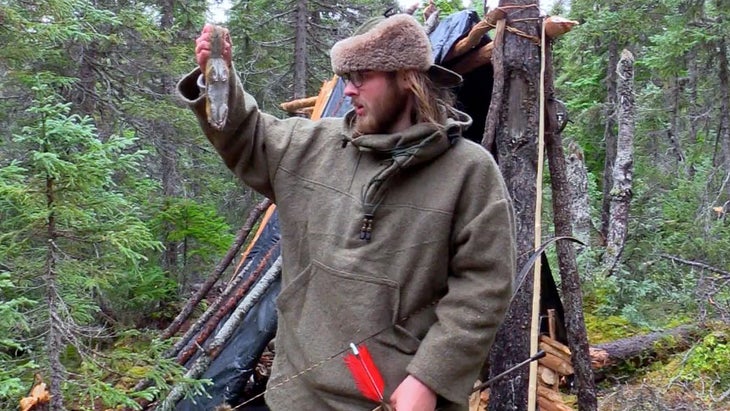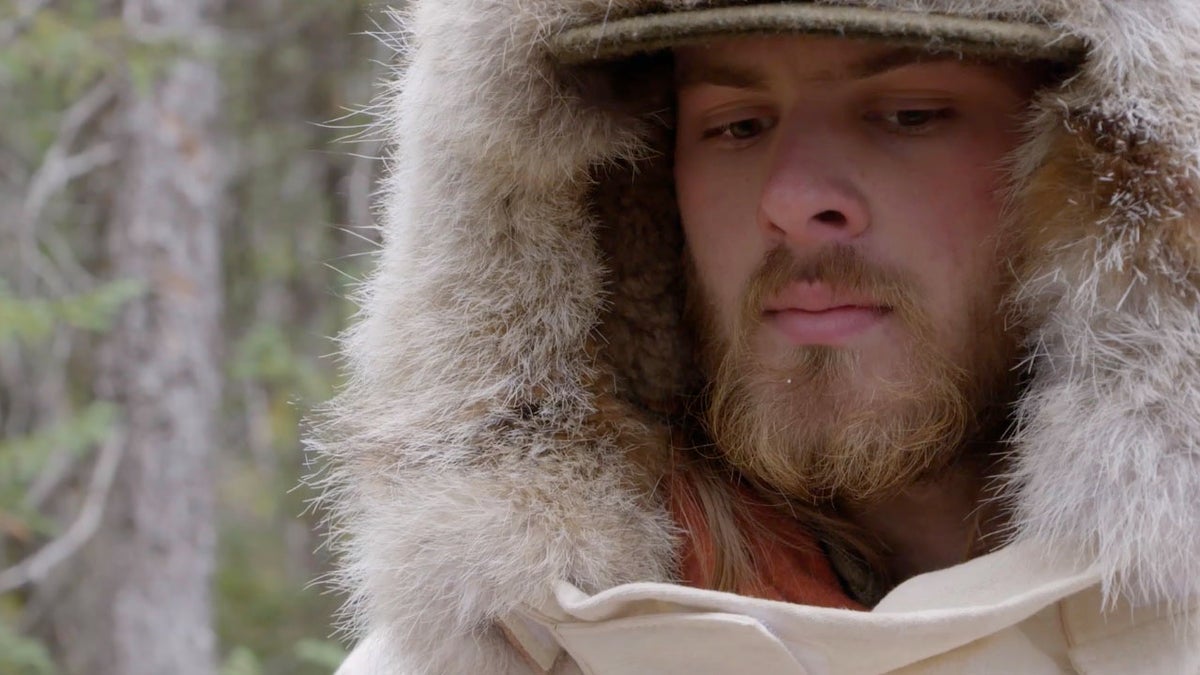Imagine the Tour de France peloton sitting on the start line, preparing for three grueling weeks of cycling through the Alps and Pyrenees. Suddenly, a cyclist gets off his bike, walks through the forest and reappears astride a 1962 Ducati Scrambler motorcycle. In this bizarre scenario, the Tour allows riders to use anything they find along the road to help them reach Paris. The cyclist happily speeds past the peloton on his motorbike, leaving everyone in his dust.
This vision came to mind while watching the first episode of Onlythe ninth season last week. Contestant Jacques Turcotte, a 23-year-old expedition guide from Alaska, was searching for food when he found a spring-loaded animal trap – the type that Elmer Fudd could hilariously fall into while chasing Bugs Bunny . The Only The rulebook allows contestants to collect any man-made objects they discover, and in previous seasons contestants have built pontoon boats, fishing lures, and even a makeshift hot tub out of waste. But it was the first time that a Only the actor has already found a functional tool ideal for catching rabbits, beavers and other small game. Turcotte’s find looked like survival manna from heaven.
(Spoilers ahead.) So you can imagine my surprise watching episode two when Turcotte became the first person to drop out, returning home after 15 days in the wild. His reasoning was twofold: the daily ritual of killing animals left him emotionally drained, and he missed his girlfriend and his dog.
This is not the first time that a Only competitor struggled with these psychological pressures. In season six, Ray Livingston of Vancouver, Washington, burst into tears after killing and eating the talkative squirrel that had become his only companion along Great Slave Lake in Canada. “I betrayed him,” Livingston said after devouring the rodent.
And, way back in season three, schoolteacher Jim Shields bailed out after just three days in Patagonia because he missed his wife and two sons.
Still, Turcotte’s departure marked one of the biggest twists in the show’s history. It’s no wonder the TV cameras lingered on the trap hanging from a tree as Turcotte packed up his things and left.
Small game trapping may be the key to winning season nine. After two episodes, contestants begin to learn about the coastal food sources of Labrador, Canada. The streams are teeming with brown trout, but the fish seem to come in two sizes: small and tiny. Feathered grouse flit about in forests, and squirrels hop along tree branches. While competitors spotted piles of bear droppings, there was no sign of big game like moose, deer or musk ox that could provide enough protein for weeks or months.
That’s why I assumed the trap would have given Turcotte an endless supply of squirrel or rabbit meat – the bike in the bike race. But Turcotte’s short story taught me a new lesson about Only: a benefit to eat does not guarantee one in the daily fight against isolation.
Last minute preparations for the desert
The first episodes of any Only the season has a familiar ebb and flow, and so far, season nine is no different. We were introduced to the contestants on the field and then briefly taken to their homes, where we saw previously shot footage of them preparing to leave and saying goodbye to their loved ones. Karie Lee Knoke, 57, bid farewell to her off-grid yurt; Tom Garstang, 35, said goodbye to his girlfriend; Benji Hill, 46, hugged his wife and daughter.

It turns out these goodbye scenes are a bookend to a somewhat frenetic time in the life of a Only cast member.
Candidates learn that they were chosen between a month and a half and two months before their departure date. Then, a few weeks before their departure, they discover their destination.
During this period, they are like students preparing for an exam. When growers disclose the location, they research local flora and fauna. They are also honing their bushcraft skills like crazy and trying to master the ones they lack. Nicole Apelian, a contestant in seasons two and five, says she practiced making fire with a ferro rod and began carrying a sharp survival knife with her wherever she went.
“I put cedar bark in the water and spent hours every day working it with my knife to make kindling. I also practiced tying knots,” says Apelian. “You want those skills to take root, so your muscle memory can take over when you’re tired and hungry.”
Throughout this period, competitors also gorge themselves on food in an effort to build up valuable fat stores. Eventual season six winner Jordan Jonas knew his nervous body was putting him at a disadvantage, so he embarked on a harrowing weight gain regimen after learning he had been cast.
“I tried drinking these Mass Gainer shakes but I got so fed up,” he told me. “So what I would do is drink half a bottle of Ensure, then fill the rest up with olive oil and swallow the rest. I was doing that several times a day.
Jonas says he gained 25 pounds in just one month.
Woniya Thibeault, who lasted 73 days in season six, took a different approach to preparing his body. Rather than gorging, Thibeault followed a ketogenic diet, with intermittent fasts and regular cold water dives, to prepare her body and brain for the times of starvation and freezing temperatures she would face in the Canadian subarctic. . Then, in the last few weeks, Thibeault ate like crazy.
“A lot of people come out cold, never having really gone without food for a long time, and the feeling catches them off guard,” she says. “The biggest thing I see when I watch the show now is that nobody trains to be hungry and have a lot of really physical things to do. That’s the universal part of the experience of everyone there.
Finally, after the competitors have left, they spend a week together on site before heading out into the woods. During this stretch, they meet the other cast members, pick up up-to-the-minute location information, and practice using the camera equipment. Turns out this last week isn’t always fun.
Apelian said the cast of seasons two and five spent the week developing friendships and bonds. But Thibeault and Jonas said attitudes and prickly egos swirled within the group in season six.
“It was a weird dynamic,” Jonas says. “You’re trying to be friends, but you’re also in this competition, and it was hard to tell if people were really friendly or just trying to hook you up for all your information.”
Favorites
Turcotte’s departure was another snowball for me, as I cast him as one of the strongest cast members after the opening episode. His experience in ice climbing and Arctic expeditions gave him a head start, as Labrador is covered in snow and ice in the winter.

Three other competitors caught my eye as potential favorites: Canadians Juan Pablo Quiñonez and Teimojin Tan, and American Adam Riley. Quiñonez recently completed a 100-day solo survival test in Manitoba’s frozen backcountry, an experience that likely prepared him for starvation and severe cold.
Riley may not have the same backcountry skills as others, but he’s used to tolerating isolation: in 2018, he sailed alone across the Pacific Ocean, a journey that lasted 80 days. And then there’s Tan, a doctor who specializes in wilderness survival. Tan is also a member of the Canadian Army Reserves, where he was trained in arctic survival. On paper, he probably has the strongest resume in the woods.
But of course, therein lies the binding nature of Only. Survival training, past expeditions, and even scavenged animal traps can only take a competitor so far. At some point, everyone wants to go home.

